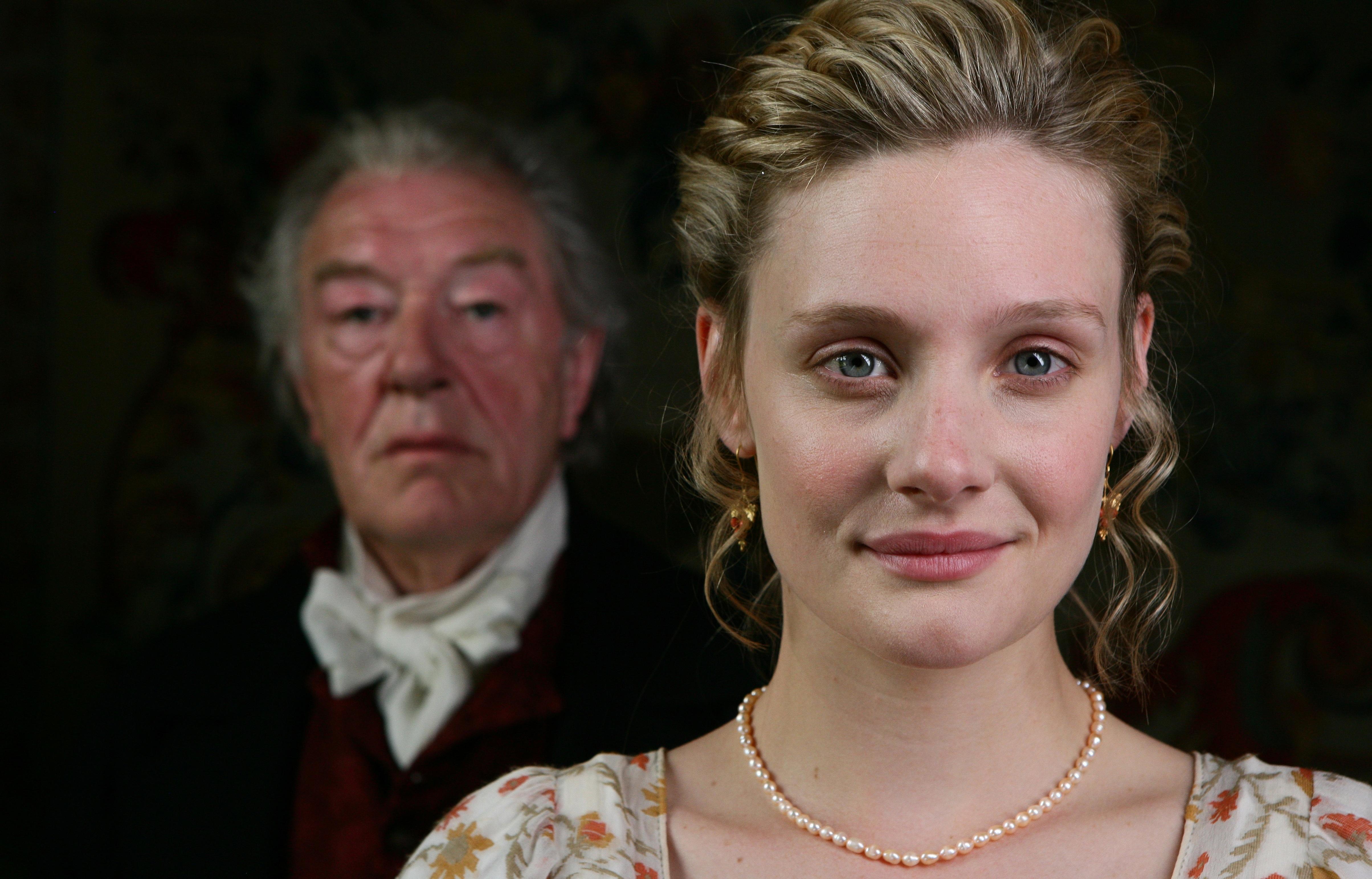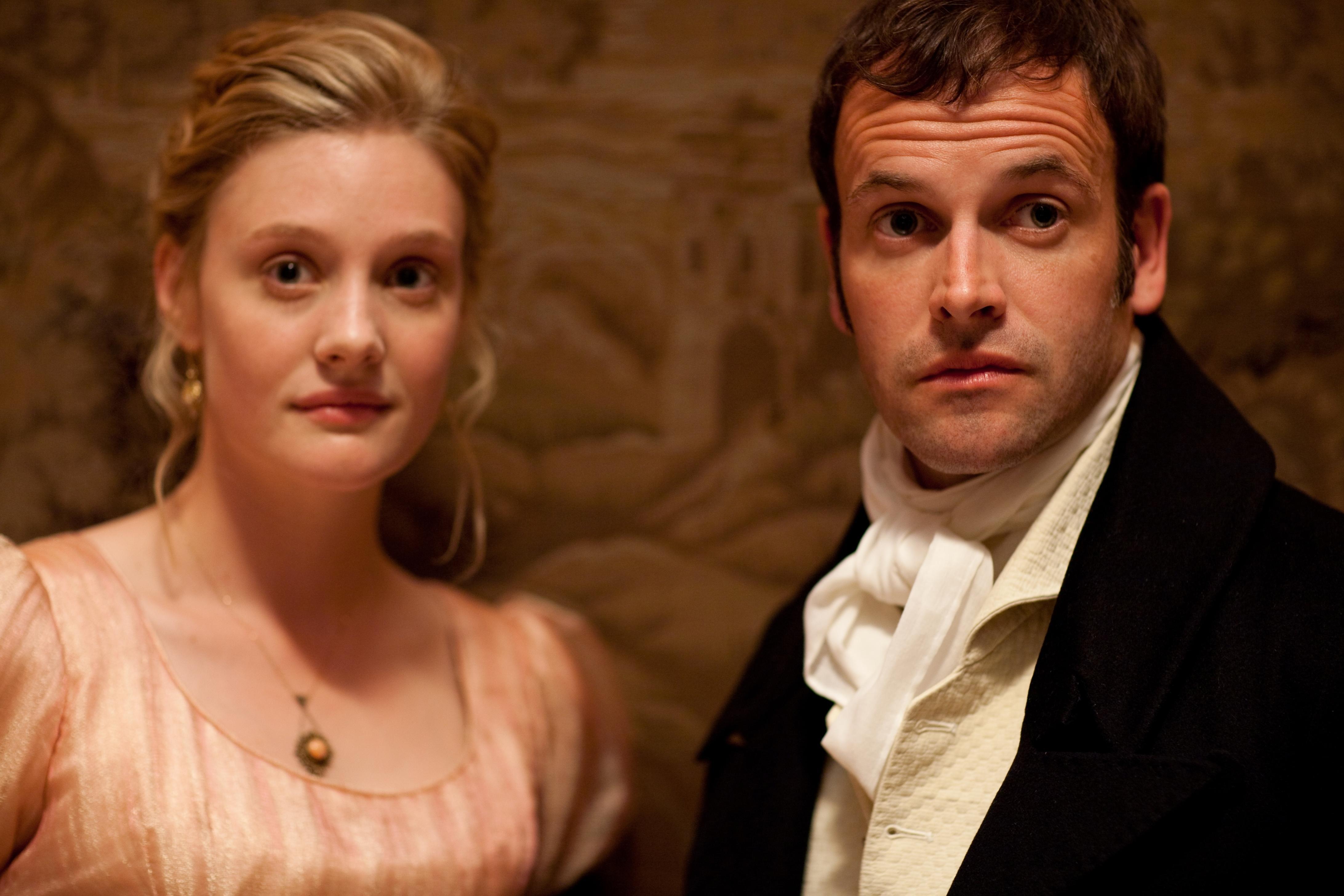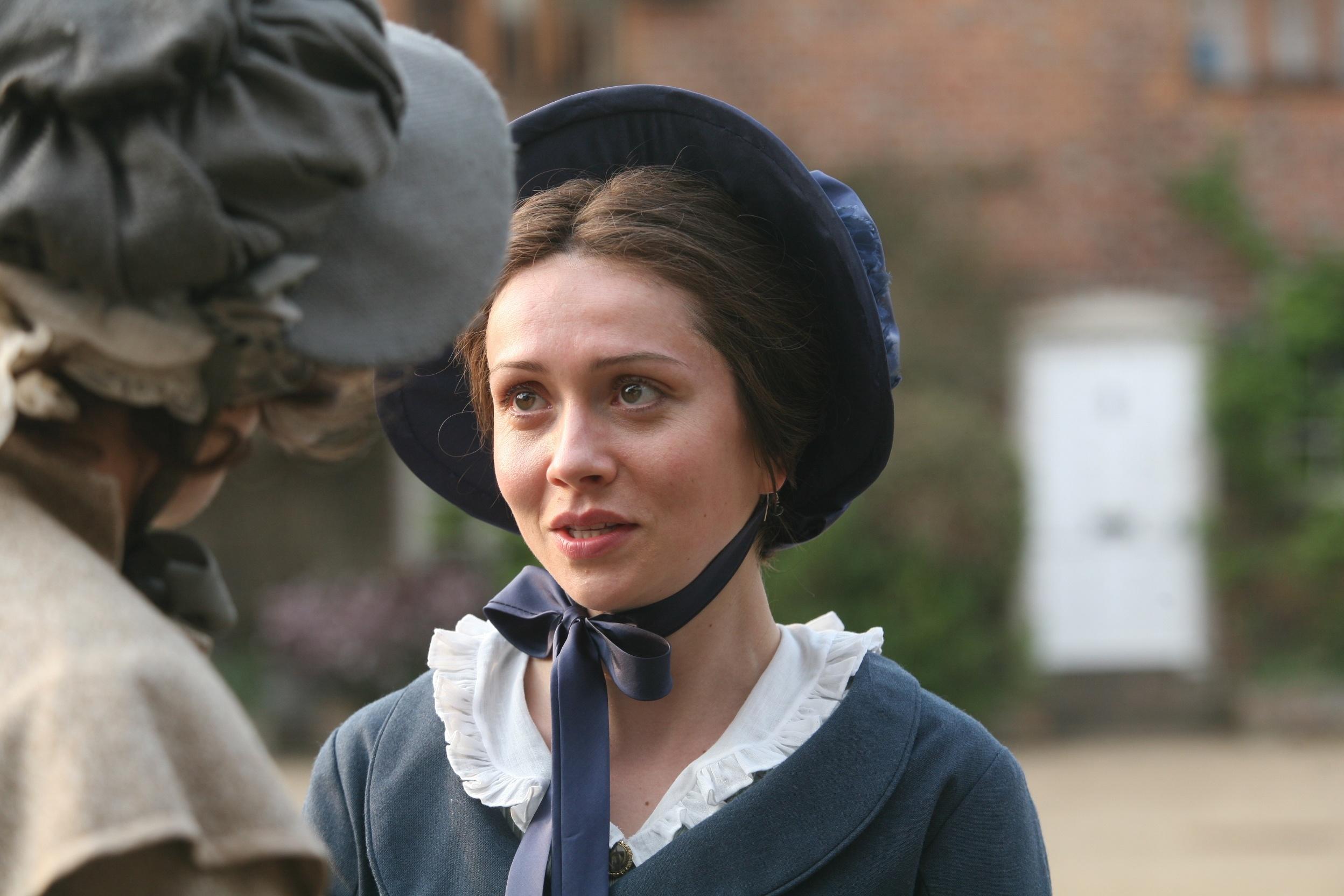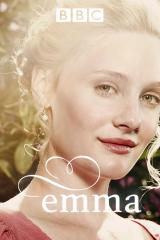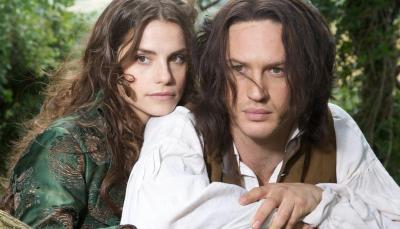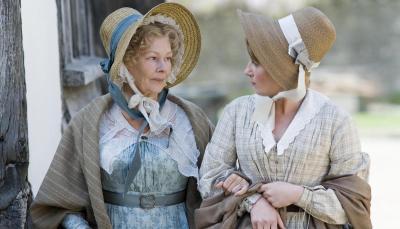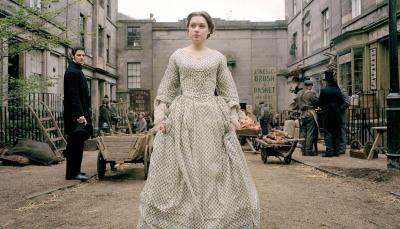Classics Revisited: The Best 'Emma' Is One That Allows Its Heroine to Be Awful
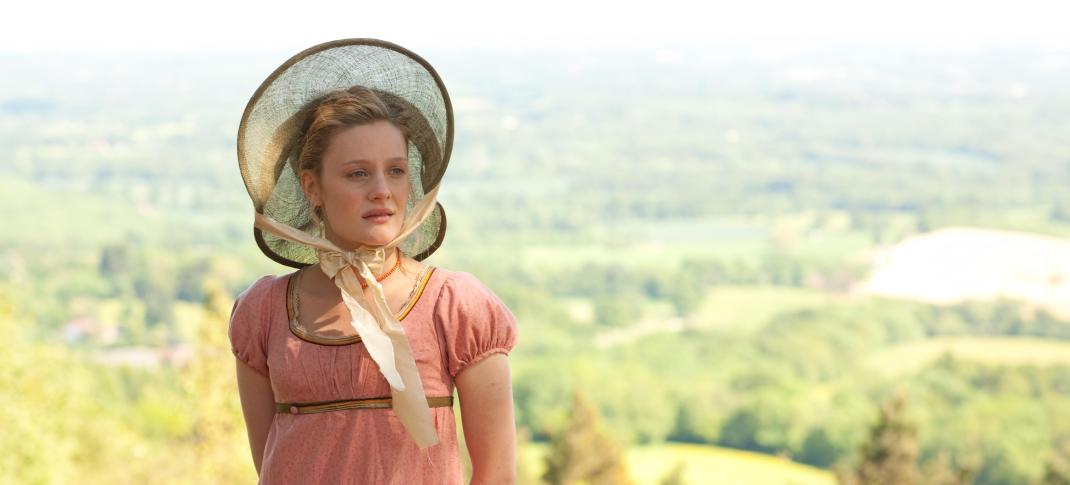
Romola Garai in "Emma"
(Photo: BBC)
As part of our "Classics Revisited" series, we're looking back at some of our favorite series and movies from years ago. Next up: The 2009 BBC adaptation of Emma starring Romola Garai and Jonny Lee Miller, a take on Jane Austen's classic that isn't afraid to let its titular heroine be messy and awful as she is adorable and fun.
Emma is a fairly frequently adapted Austen story --- there are eight currently, counting both contemporary and modern versions, the most recent of which arrived in 2020. But most of these adaptations are feature films, which necessarily have to cut and massage some of the original source material to fit their stories into a standard theatrical run-time. The beauty of this BBC version is that its longer TV format really does feel like a revelation, allowing so much more of the novel's nuance to make its way to the screen.
The added length also allows this Emma to highlight how deliberately paced and plotted everything else. Almost nothing about it feels wasted or extraneous. One of the best things about it is how everything ultimately connects and returns to the story's more significant point: The true education and subsequent emotional growth of one Miss Emma Woodhouse.
And, let's be clear, what sets this adaptation apart from every other is its Emma, who is as sheltered, charming, contrary, and genuinely awful as anyone could ever wish. Look, I love Emma Woodhouse, but for a considerable part of this story, she is a pretty awful person. But its willingness to acknowledge that fact makes this 2009 series so great. Why? Because it shows us, finally, the true depth of Emma's growth and how much she learns about herself and the community around her along the way.
The eternally underrated Romola Garai makes a wonderful Austen heroine, deftly crafting a version of the character who feels like nothing so much as an actual real three-dimensional person. She is joyous and shallow, snobby and kind, charmingly spirited and surprisingly dull, utterly convinced of her own brilliance but painfully unaware of just how much she doesn't know.
Her matchmaking pastimes seem to stem as much from simple boredom as any actual skill at reading people, and the sly ways the series underlines her provincial understanding of the world repeatedly undercut her own obvious sense of superiority. She is endearing and completely exasperating by turns. With her slow realization that people aren't dolls whose lives she can manipulate for her own amusement, you can easily see flashes of the great woman she will one day become.
If this adaptation has a weakness, it is probably the romance between Emma and Knightley. It's not like this depiction of their love story is necessarily bad. Garai and Miller have fine chemistry, and their performances make the pair's lifelong friendship feel lived in and believable. And even if Miller's Knightley, unfortunately, often comes off as more "horrible scold" than "concerned BFF," the series does at least allow him to admit and apologize for how he's treated her throughout the show. (Not always a given!)
But this specific version of their love story also lacks the big sweeping declarative moment of Jeremy Northam's Knightley declaring that he rode through the rain because he couldn't wait any longer to tell Gwyneth Paltrow's Emma how he felt about her. (Truly an iconic and swoon-worthy scene!) Garai and Miller aren't afforded the same opportunity, and it's a shame because both they — and the characters — deserve it. And, no, the admittedly excellent "If I loved you less, I could talk about it more" line doesn't make up for it!!
The final episode also makes the frankly bizarre choice to avoid the problematic sequence in which Emma has to admit to Harriet that she's planning to marry the same man her friend has set her heart on. Though much of the series is about an Emma who is growing throughout its story, particularly in the final episode, the fact that we miss out on seeing this critical moment of accountability for her (plus a genuine apology!) is...well, it's an unfortunate decision. Maybe Harriet is so used to being treated poorly that this is just another entry in a long list of transgressions that she's had to endure, but getting to see Emma have to step up and take responsibility in this way is something we as an audience probably should have gotten the chance to witness for ourselves.
The series' supporting cast is packed full of stand-outs, from Michael Gambon's charming turn as Emma's anxiety-ridden father to Tamsin Greig's note-perfect Mrs. Bates and Louise Dylan's full-hearted commitment to the often thankless role of poor Harriet, Emma's stupidest but possibly sweetest friend probably deserves whatever the actor version of hazard pay is.
Your mileage may vary on whether you find obsequious vicar Mr. Elton or bro-y playboy Frank Churchill the series' worst male character -- and to be fair, it's a close race -- but Blake Ritson probably deserves an award for entirely suppressing his leading man vibes to play Elton as a sort of nineteenth-century reply guy whose overly familiar behavior has the same kind of serious creep factor that, in our modern era at least, would likely suggest the possible need for a restraining order.
Whether it's due to the overall quality of the whole cast or the fact that we get to spend considerably more time with the story's supporting characters in a four-hour series than a two-hour movie, this Emma feels much more like an ensemble production than some of the versions that have come before it. As a result, Highbury feels like a real community in its own right, a place where things happen independently of the larger arc of one woman's individual story.
Even though this Emma originally aired on PBS's Masterpiece when it first arrived in America, for some reason, this series has always felt...I don't know; kind of underrated compared to the big-screen versions of Austen's story.
This is a shame because, even though the adaptation uses the least of the author's original language, it's the version that probably preserves the most significant part of its spirit and story. Emma Woodhouse's coming-of-age journey is both sweet and satisfying, and her happy ending feels genuinely earned rather than randomly bestowed simply because it's what the book requires. The whole thing is such a great example of what an excellent onscreen adaptation looks like that I struggle to understand why it didn't become a blueprint for similar efforts after its release. (What I wouldn't give for a similar TV version of Persuasion...)
Emma is currently available to stream on BritBox.

